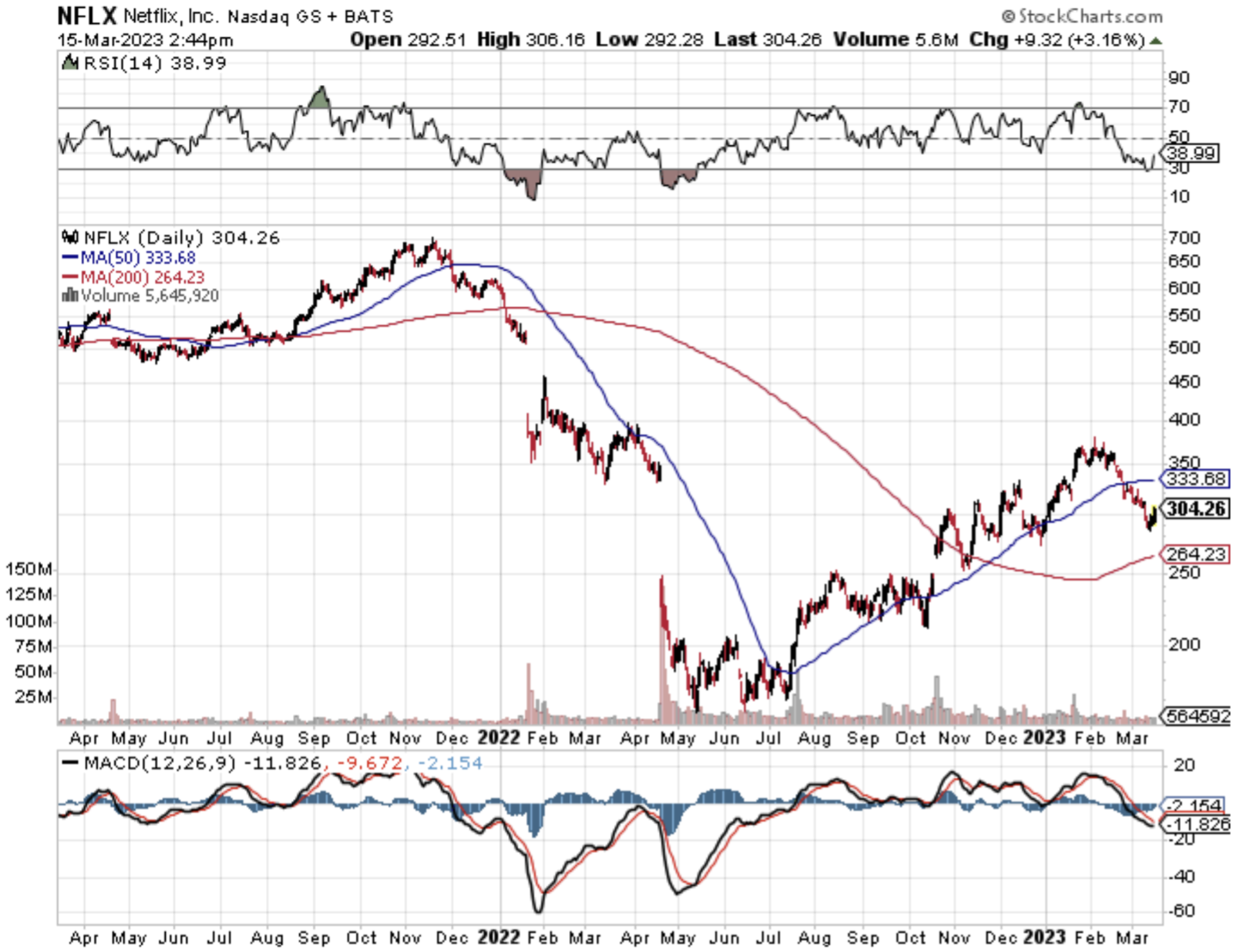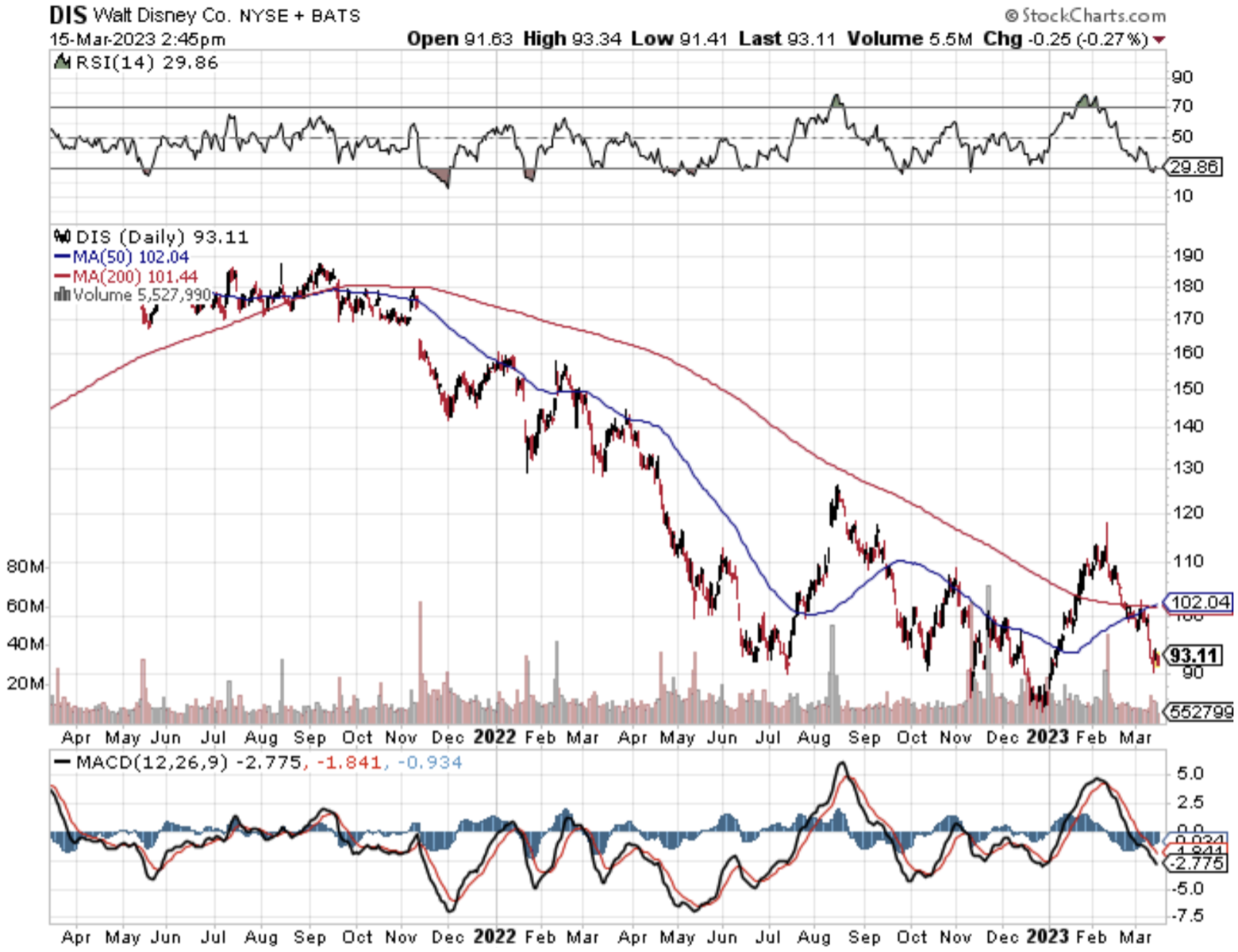The Unknown in the Digital Ad Space
The uncertain digital advertising environment has been a thorn in the side of legacy media giants for quite some time.
Companies from Comcast (CMCSA) to Warner Bros. Discovery (WBD) are feeling the pressure as profitability struggles pile up.
Unfavorable macroeconomic headwinds coupled with decreased ad budgets amid a decline in linear TV and digital search trends put the ad market through the wringer in 2022.
Recent ad market softness comes as media giants like Disney (DIS) and Netflix (NFLX) have embraced ad-supported streaming alternatives as the race for eyeballs escalate.
Disney's direct-to-consumer division lost an eye-popping $4 billion-plus in 2022.
Warner Bros Discovery is now targeting $4 billion in cost savings over the next two years.
Advertising revenue within NBCUniversal's media division increased by 4% in Q4 because of a boost from the incremental revenue from the FIFA World Cup.
Looking ahead, the lack of brand name events in 2023 such as the World Cup, Olympics, or U.S. midterm elections, will likely be a drag on ad spend in 2023.
Those events greatly aided the battered industry with the domestic ad market totaling $318 billion last year — an increase of 8% compared to 2021.
Similarly, Spotify (SPOT) CFO Paul Vogel told investors during the latest earnings call: "Advertising in Q4, overall, it's definitely continued to be very up and down."
Spotify's Q4 ad-supported revenue, boosted by podcasting, grew 14% on a year-over-year basis to €449 million — accounting for 14% of total revenue.
Disney and Netflix rolled out their ad tier products at a time when the ad market is in flux, but the move seems to have been a lucrative one.
At the time of the debut, the company said over 100 advertisers bought inventory for the launch — bucking the trend of a global ad spend slowdown.
Similar to Disney, Netflix is playing the long game when it comes to its recently launched ad-supported tier, which officially debuted in November.
In its latest shareholder letter, Netflix said engagement for ad-supported subscribers "is consistent with members on comparable ad-free plans, is better than what we had expected, and we believe the lower price point is driving incremental membership growth."
Investors should run to higher grounds to avoid the upcoming slaughter in legacy media.
The cord cutter phenomenon is real and the pivot to work-from-home culture has really stuck the fork in many traditional services that used to be part of American culture.
Legacy media is one of the big losers – nobody watches analog television anymore.
Investors will need to seek attractive properties such as NFLX to buy the dip.
They benefit from the first mover advantage, but Disney is also finding their way after firing former CEO Bob Chapek and replacing him with the guy before him - Bob Iger. It’s not a pure streaming play which is also an issue for the likes of Amazon and I do think Roku is a little too growth based at this point in the business cycle.
The overall message is to avoid unproven tech assets for the time being with bank turmoil and interest rate tumult.
The only exceptions are active traders who use volatility in their favor and play from the long and short side. Traders usually don’t discriminate and can jump in and out of these sharp movements.
If traders want to get into streaming or social media stocks, that is fine, but stick with the brand names and shun the exotic names for now.






